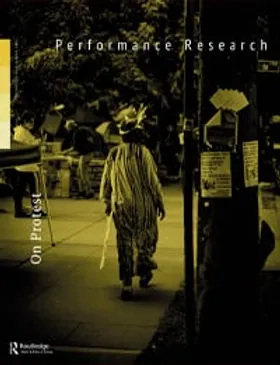Revolution in the Library
Your guide to lefty data
Radical Reference librarians unlock treasure troves of information for social justice seekers
Radical Reference is a growing movement of librarians and other bookish radicals who want to use their various cataloguing skills to not only efficiently replace stacks of used hardbacks on the right shelves, but also make the world a more socially just place. If you’re an activist looking to poke a hole in the system, they’ll point you to the books, stats, databases, microform and esoteric library collections that can help you transform your manifesto from dismal diatribe to revelatory report. A Montreal chapter has been in the works since the summer and is set to be unveiled this weekend.
“What we’re doing is using
information for the purpose of social justice,” says Megan
Fitzgibbons, a co-founder of the Montreal collective whose day job is
as a librarian at McGill’s McLennan Library. “We want to provide
a forum for people that are activists or independent journalists who
can’t get information through mainstream sources.”
To go beyond mainstream sources
sometimes means getting out of the hallowed halls of the
institutional libraries. Fellow co-founder Robin Kelley, who heads up
a program of digital literacy at the Atwater Library, says the city
is full of resources people don’t know about.
“Public libraries have less access to
certain databases that we might be able to figure out on our own. And
they have limited resources that they can put towards in-depth
research. There are a lot of small libraries that people can get
access to like the QPIRG library, the Union for Gender Empowerment,
the 2110 Centre, the [anarchist library] DIRA. The archives of the
Canadian
Centre
for
Architecture
have
all
sorts
of
stuff
on
artists.
And
lots of
clubs on campus have their own collections,” she says.
One of the group’s long-term plans is
to use their site as a central place to gather histories of social
movements in the city.
“We’d like to document them to see
what was effective and what wasn’t. That information might exist
somewhere, but we would bring it all together in one place,” says
Kelley.
On the message board of the global site
(radicalreference.info),
users can respond to each other’s queries on forums that resemble a
militant version of Ask.com.
But the group doesn’t only aim to have an online presence. Street
Reference is their plan to offer informational support at protests.
“The idea is to help provide information to people on the ground.
Where can I get medical help if I need it? What are my rights if I’m
arrested?” says Fitzgibbons. “The larger Radical Reference group
did something similar at the Republican National Convention in New
York. They were providing practical information for activists about
where delegates were staying, where people could stay in the city.”
Their debut action will be this
Saturday’s demonstration against police brutality.
“It’s an international event but
the focus is on victims of police brutality in Montreal. That’s
part of our mandate: providing support to groups doing activism here;
the local is important to us,” says Fitzgibbons.
In the meantime, the group is looking
for studious radicals to answer their virtual reference questions,
compile lists of resources, and translate documents into French. But
Fitzgibbons emphasizes that the group’s next steps depend on what’s
figuring out what activists are missing in Montreal.
“It’s not so much what we want to
do as much as what do activists need that we have the skills to
provide for them?”
For more
info about Radical
Reference Montreal see:
radrefmtl.wordpress.com.
The demo
against police brutality is
part of the North
American Day to Stop
Police Brutality and
Repression. It takes place
Saturday at 12:30 p.m.
at the corner of
Guy and Maisonneuve.
Details at: 22octobre.net.
Montreal Mirror October 21, 2010 (this is the unedited text)



Comments
Post a Comment